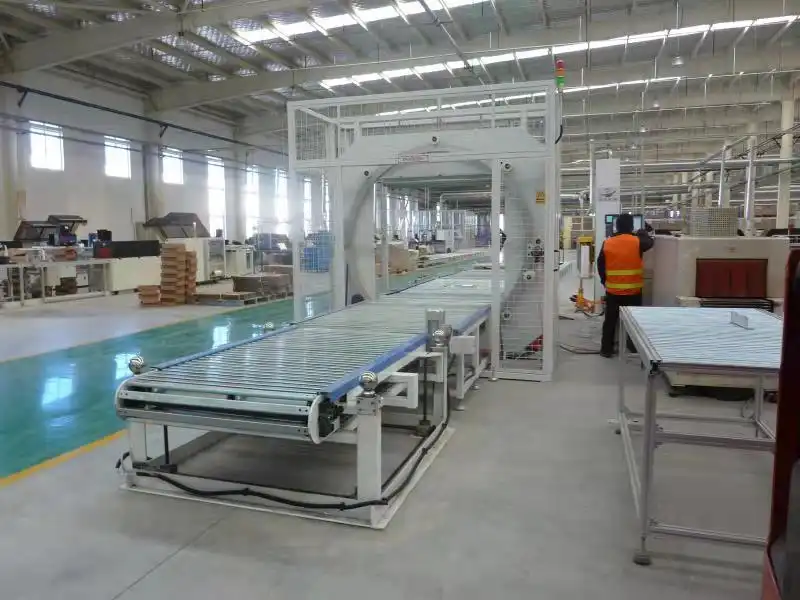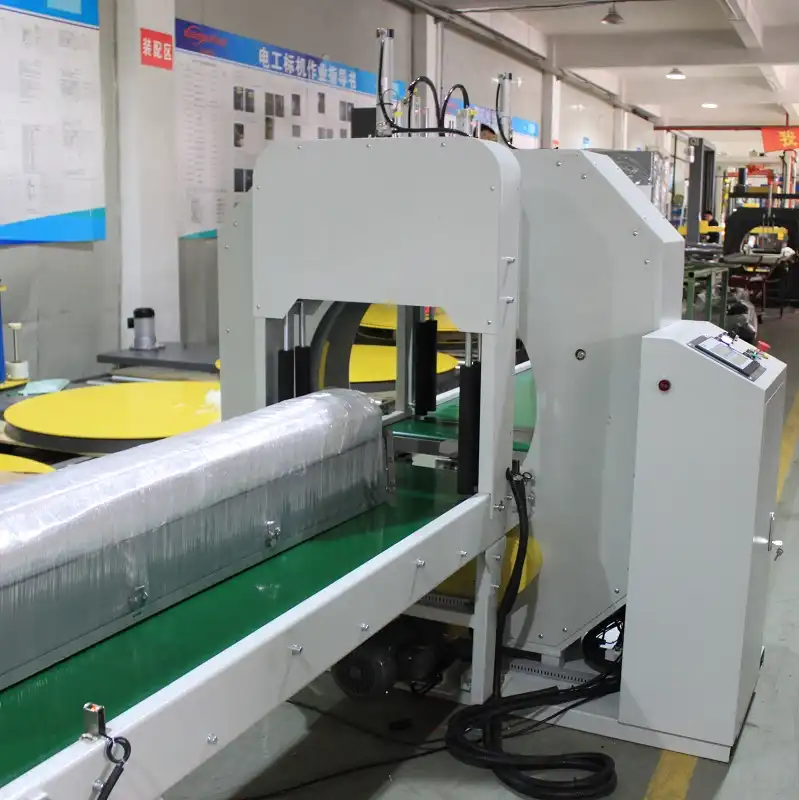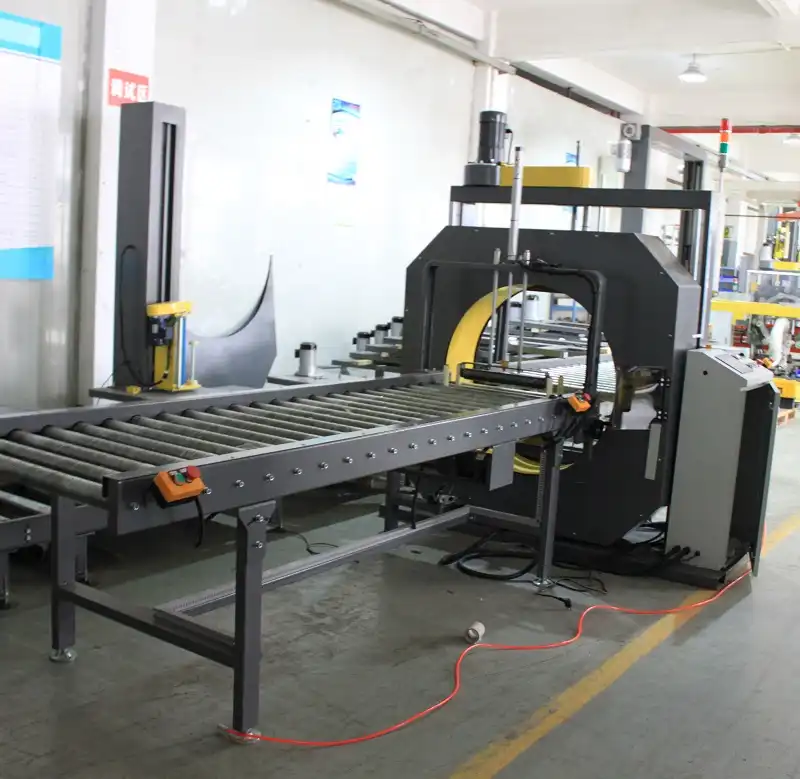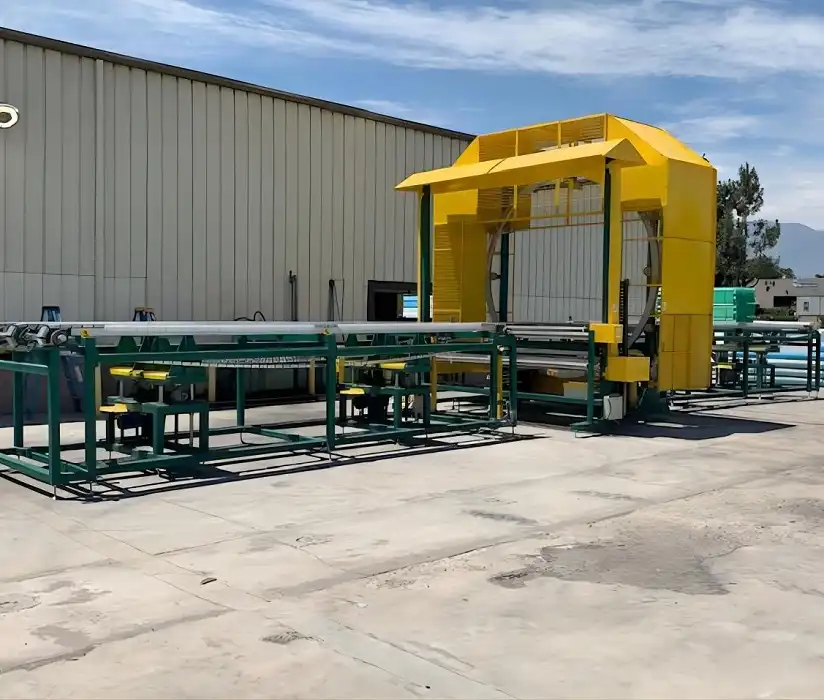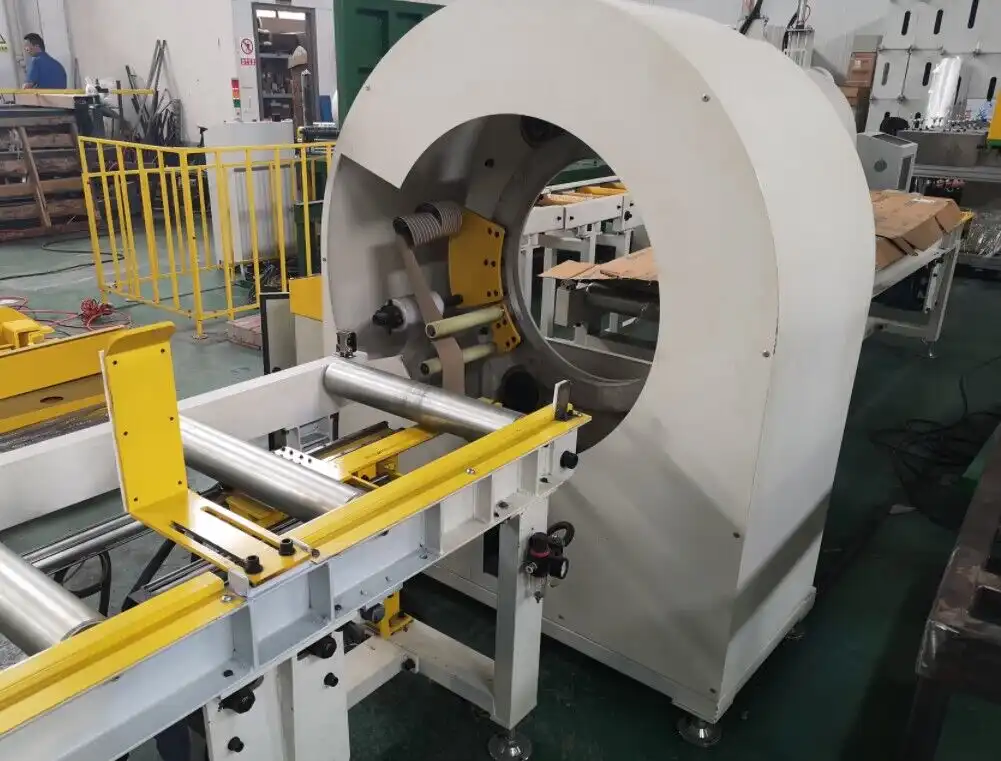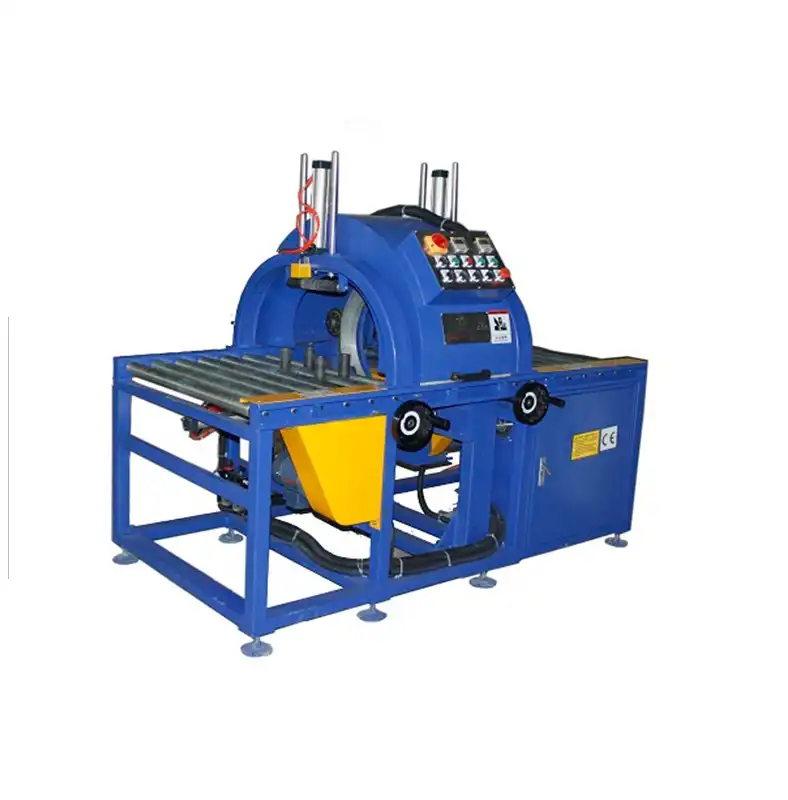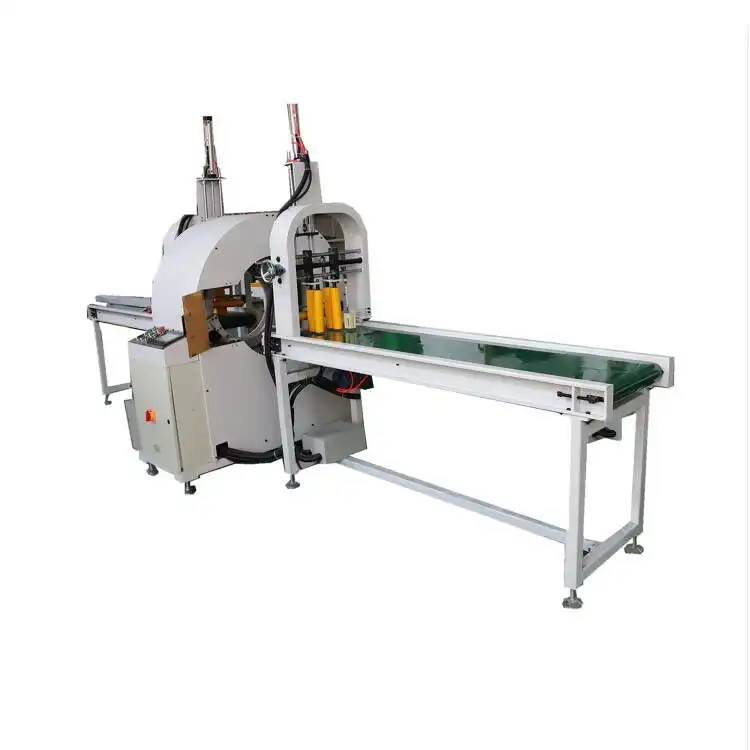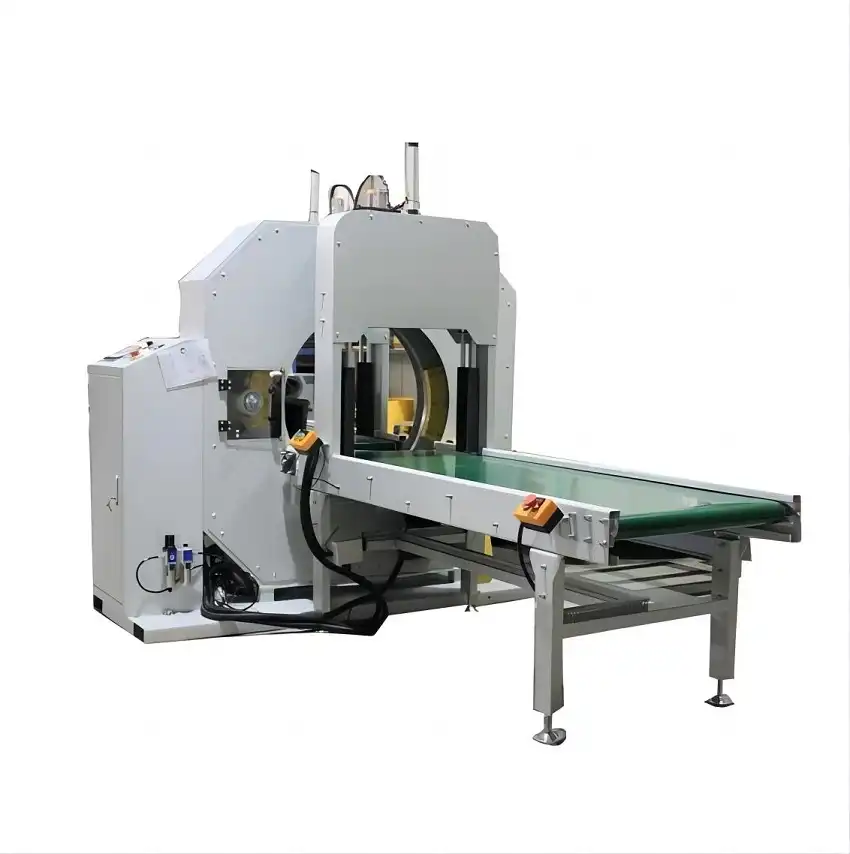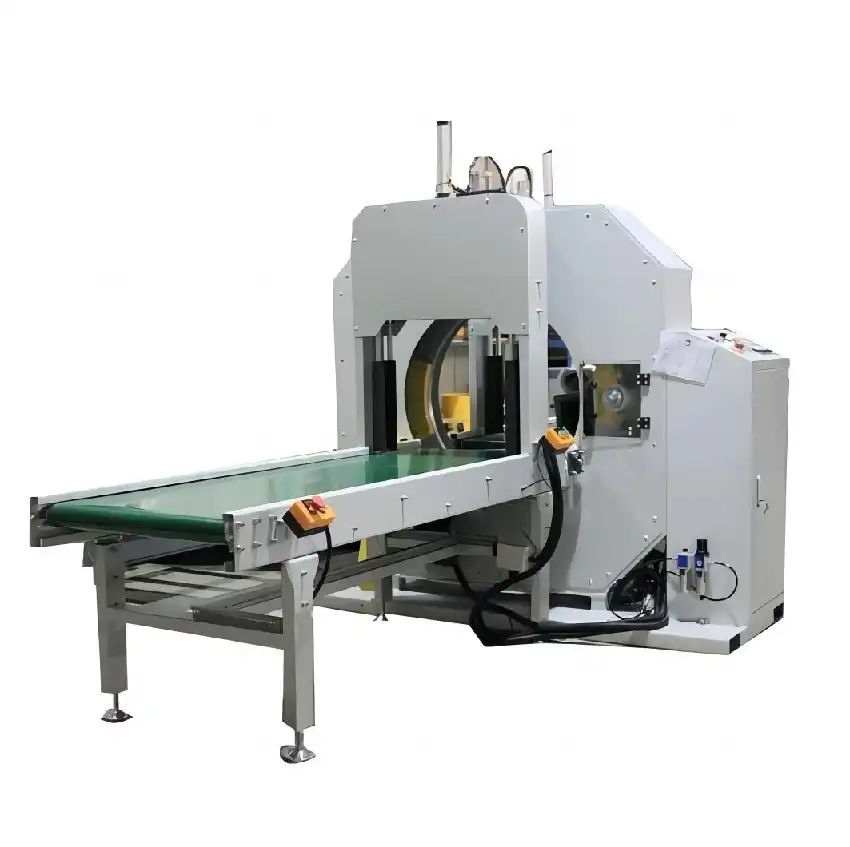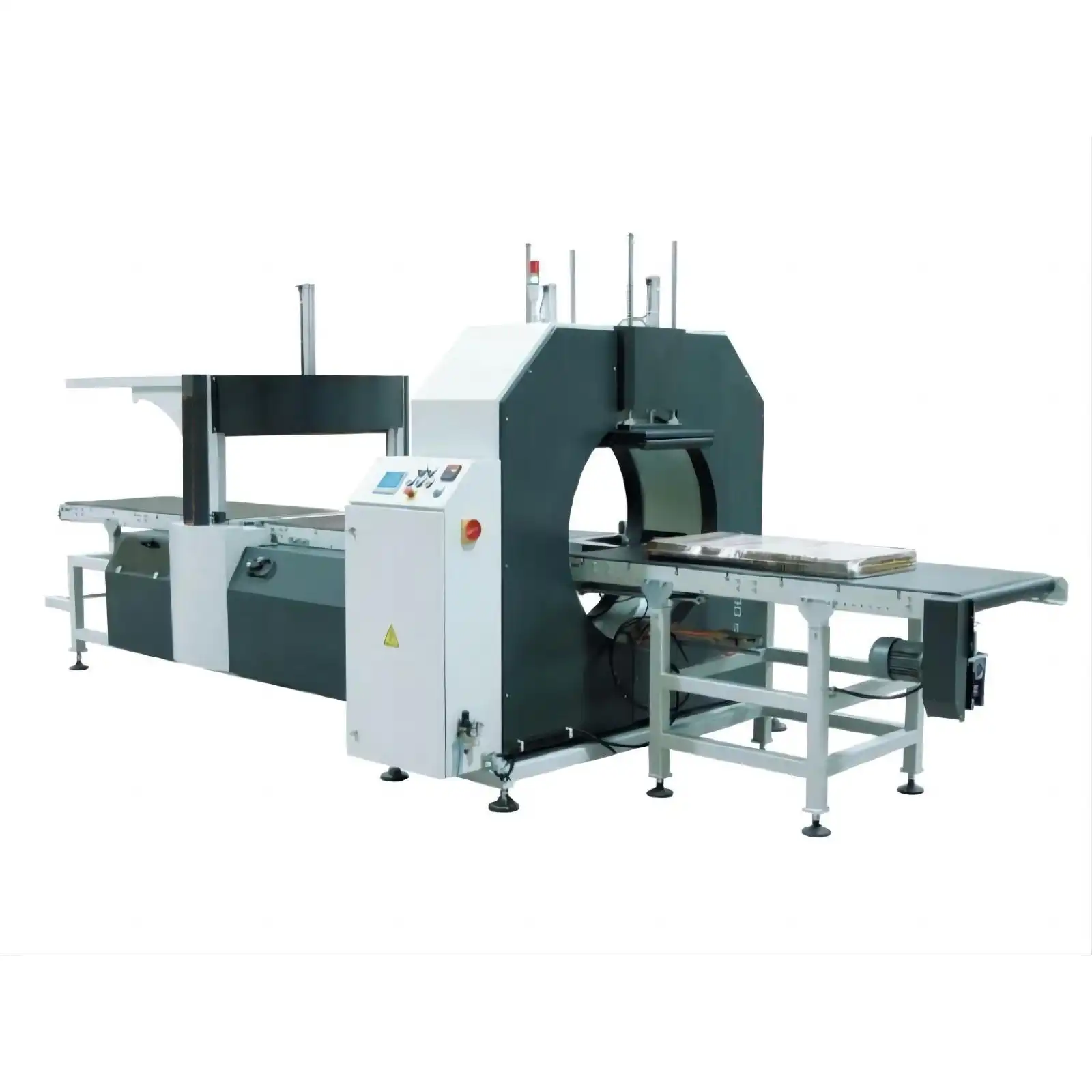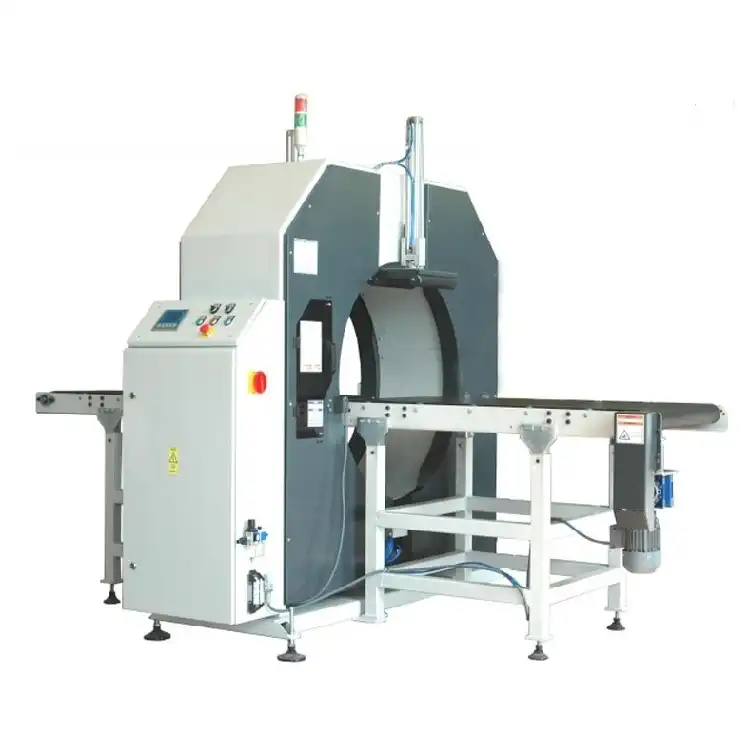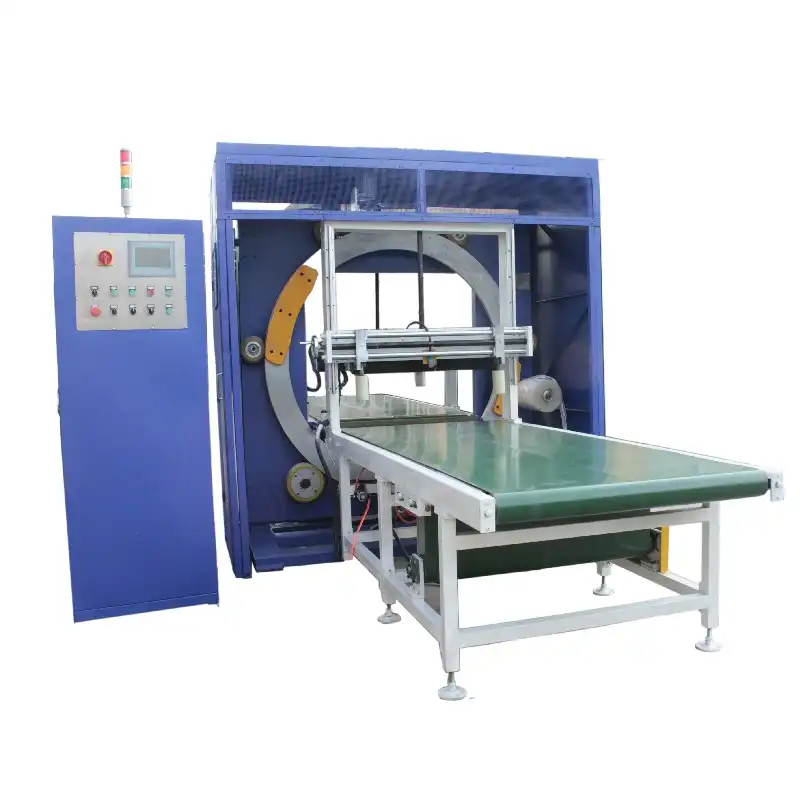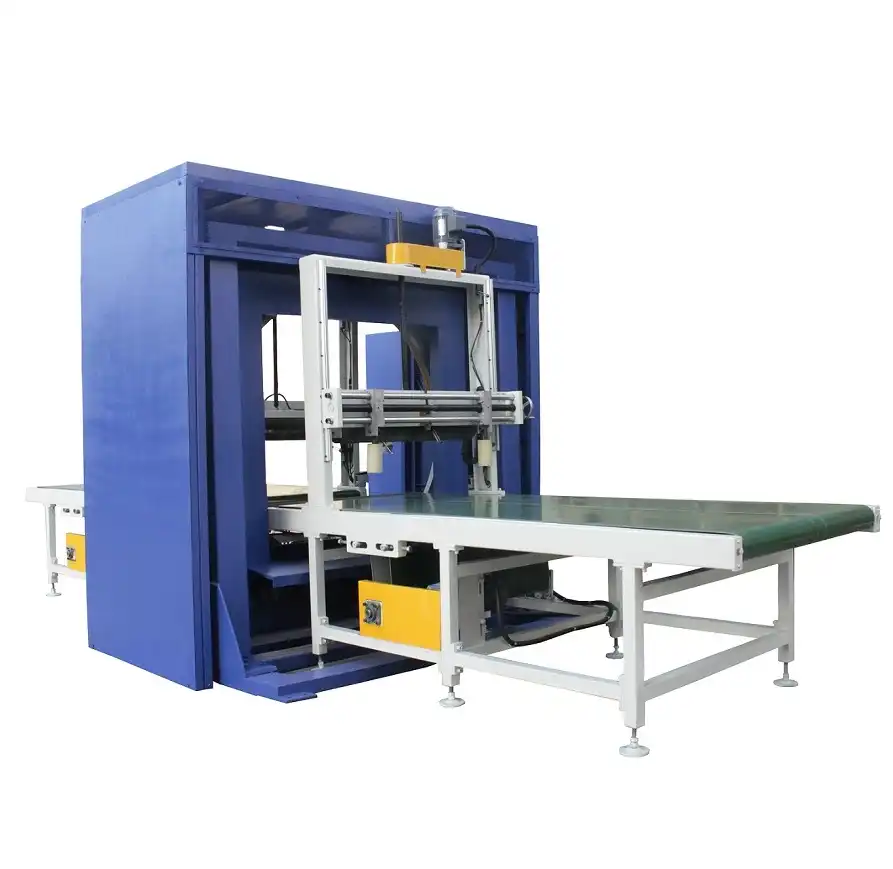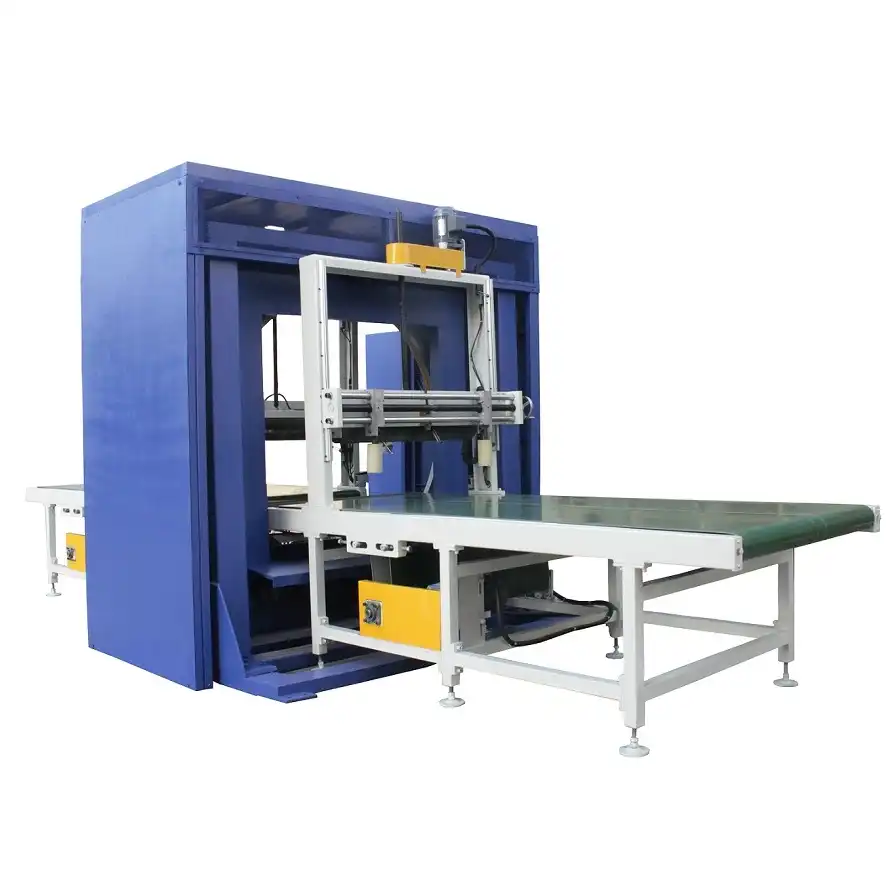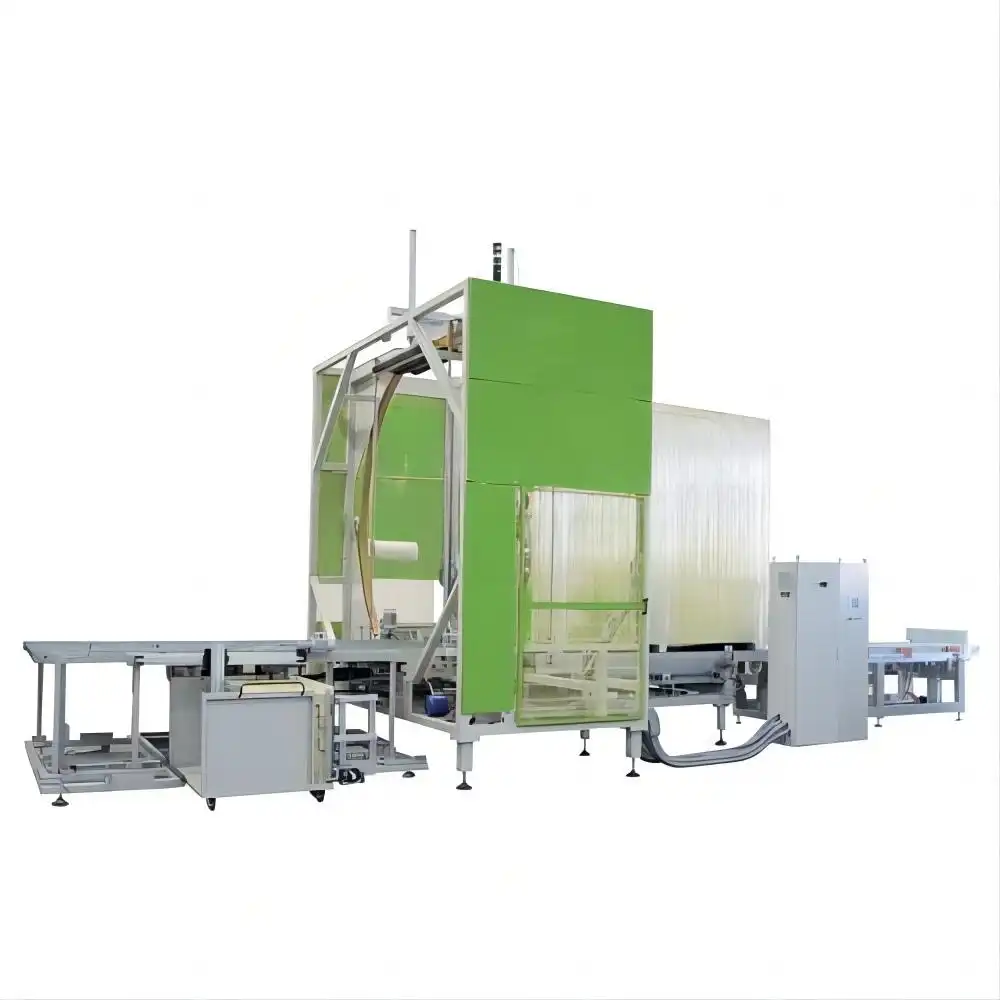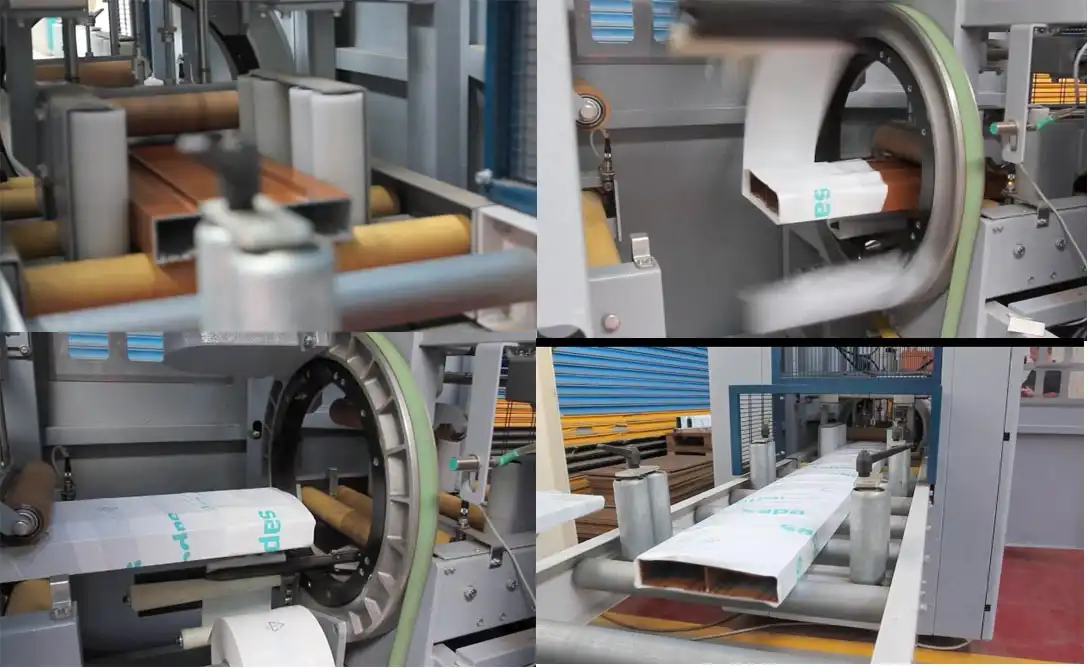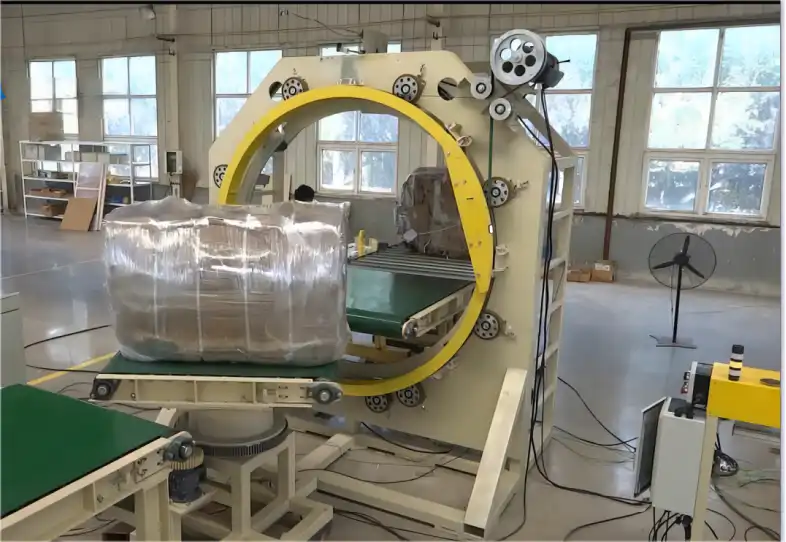Comparing Industry Compliance in Different Orbital Stretch Wrappers
In an era where automation and industry compliance are becoming inseparable, orbital stretch wrappers play a pivotal role in packaging processes across sectors. Each industry, from food and beverage to automotive and logistics, has its unique set of regulations that must be met to ensure safety, efficiency, and durability. This article will explore how different orbital stretch wrappers align with industry standards and regulations, highlighting the nuances that separate compliant machines from those that might put operations at risk.
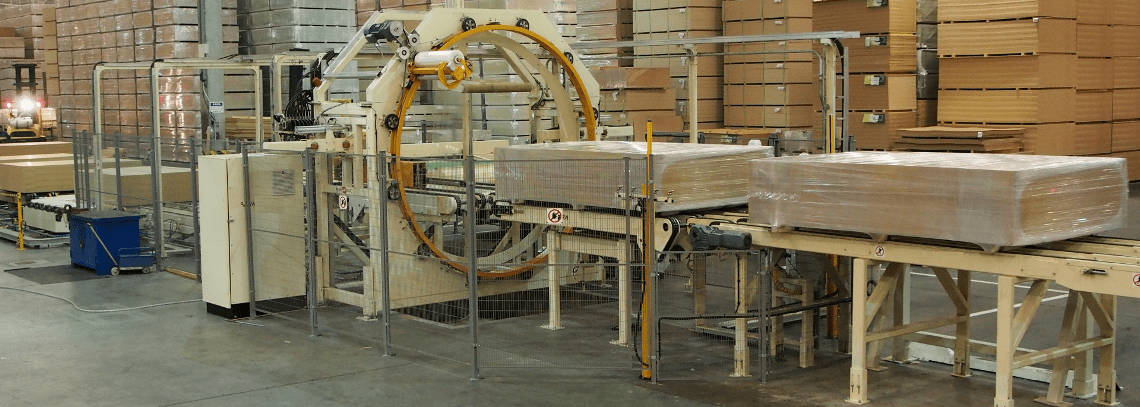
1. Introduction to Orbital Stretch Wrappers
Orbital stretch wrappers are essential pieces of equipment designed to wrap products, especially long and irregularly shaped items like pipes, panels, and profiles, in protective film. The circular movement of the wrapper allows for continuous wrapping without moving the object itself, making it ideal for fragile or oddly shaped items. But how do these machines fare when it comes to industry-specific compliance?
Understanding how various industries regulate the use of orbital stretch wrappers is critical for businesses that wish to remain compliant and avoid costly penalties. In this article, we'll dive deep into different sectors, breaking down the unique compliance needs and how specific models cater to these requirements.
2. Regulatory Standards for Packaging Equipment
Every industry must adhere to local and international packaging regulations, which ensure safety, hygiene, and environmental impact reduction. For instance, the food and beverage industry must comply with FDA or EFSA regulations to prevent contamination, while the automotive sector must follow ISO standards to guarantee durability and safety during transportation. These regulatory frameworks govern how machines like orbital stretch wrappers are manufactured and used, with each industry having its own focus areas, such as material safety, machine hygiene, and operational efficiency.
3. Food and Beverage Industry Compliance
The food and beverage sector is perhaps the most stringent when it comes to packaging compliance. Orbital stretch wrappers used in this industry must adhere to hygienic design principles. This includes using stainless steel parts that can withstand regular cleaning without corroding, as well as ensuring that the wrapping material is food-safe. Machines used here must also comply with regulations around contamination prevention, such as FDA or EFSA guidelines.
Furthermore, food and beverage companies are increasingly adopting clean-in-place (CIP) technologies to ensure that the wrappers remain sterile without requiring disassembly. Compliant orbital wrappers come with easy-to-clean surfaces and design features that minimize food traps, reducing the risk of contamination.
4. Pharmaceutical Packaging Regulations
Similar to the food industry, the pharmaceutical sector places heavy emphasis on hygiene and contamination prevention. Orbital stretch wrappers must comply with Good Manufacturing Practice (GMP) standards, which require that all equipment used in pharmaceutical packaging be easy to clean and made from non-reactive materials. Additionally, wrappers need to be capable of securely sealing products to protect them from environmental factors that could compromise their integrity, such as moisture or contaminants.
In the pharmaceutical space, accurate documentation and traceability are critical for compliance. The machines must provide detailed logs of wrapping cycles and maintenance, ensuring that companies can demonstrate compliance with regulatory audits.
5. Logistics and Warehousing Standards
In the logistics and warehousing industry, the focus shifts from hygiene to durability and efficiency. Compliance standards here often revolve around ensuring that products are securely wrapped for safe transport. This is where load stability becomes paramount. Regulations like ISO 9001 and OSHA guidelines dictate that all wrapped pallets and items must meet specific stability criteria to minimize the risk of accidents during transport or storage.
To comply with these standards, orbital stretch wrappers designed for the logistics sector often feature tension control systems that adjust the tightness of the wrap, ensuring that items are securely fastened without crushing or damaging the goods. These machines must also offer reliable performance in various environmental conditions, from cold storage to high humidity warehouses.
6. Automotive and Heavy Machinery Compliance
The automotive industry relies on orbital stretch wrappers to protect bulky and heavy components during transit. Compliance in this sector is primarily centered on load protection and durability. ISO standards such as ISO 9001 (quality management) and ISO 14001 (environmental management) must be met to ensure that products are wrapped securely and sustainably.
Automotive companies also require orbital wrappers that offer heavy-duty performance, capable of wrapping large, irregularly shaped items without compromising the structural integrity of the packaging. Machines designed for this industry often feature reinforced parts and customizable wrapping patterns to accommodate varying product dimensions, ensuring compliance with packaging standards.
7. Sustainability and Environmental Regulations
Sustainability is increasingly becoming a regulatory requirement across industries, with many sectors focusing on reducing waste and improving packaging efficiency. Eco-friendly wrapping materials, such as biodegradable or recyclable films, are now being widely used, and compliant orbital stretch wrappers must be compatible with these materials. In addition to material compatibility, some industries mandate the reduction of excess film use, which has led to innovations such as pre-stretch technology in orbital wrappers. Pre-stretch technology allows companies to use less film per wrap while maintaining the same level of protection, ensuring compliance with environmental regulations like the ISO 14001 standard.
8. Compliance in Aerospace Packaging
The aerospace industry has stringent packaging requirements due to the delicate nature of the components being transported. Orbital stretch wrappers used here must adhere to standards such as AS9100, which is specific to aerospace manufacturing and packaging. This standard ensures that aerospace products are packaged in a way that prevents damage during transit, as even the slightest deformation could lead to serious operational risks.
Aerospace packaging also demands precise control over the wrapping process. Machines must offer programmable wrapping cycles and automated monitoring systems to ensure that each item is wrapped according to specific criteria. Compliance in this sector not only protects the product but also mitigates potential safety hazards during transport.
9. Medical Device Packaging Compliance
The packaging of medical devices requires strict adherence to both hygiene and sterilization protocols. Orbital stretch wrappers used in this industry must comply with ISO 13485 standards, which cover the design and manufacture of medical devices. These machines need to be designed to prevent contamination, similar to pharmaceutical equipment, but with the added requirement that they can securely wrap sterilized products without compromising their sterility.
Medical device packaging also requires traceability and accountability. Orbital stretch wrappers must be equipped with data logging features that record every wrap cycle, ensuring that compliance with sterilization protocols can be demonstrated during audits.
10. Conclusion: The Right Wrapper for the Right Industry
Choosing the right orbital stretch wrapper goes beyond simply finding a machine that wraps products effectively. Industry compliance is a critical factor that must be considered to ensure that the packaging process meets safety, hygiene, and environmental standards. From food and pharmaceuticals to automotive and logistics, each sector has unique requirements that must be addressed by the wrapper’s design and functionality.
As regulations evolve and industries place more emphasis on safety and sustainability, investing in compliant orbital stretch wrappers is essential for businesses that want to maintain operational efficiency while avoiding fines or penalties for non-compliance. Understanding these industry-specific standards ensures that companies make informed decisions and stay ahead of the competition.
